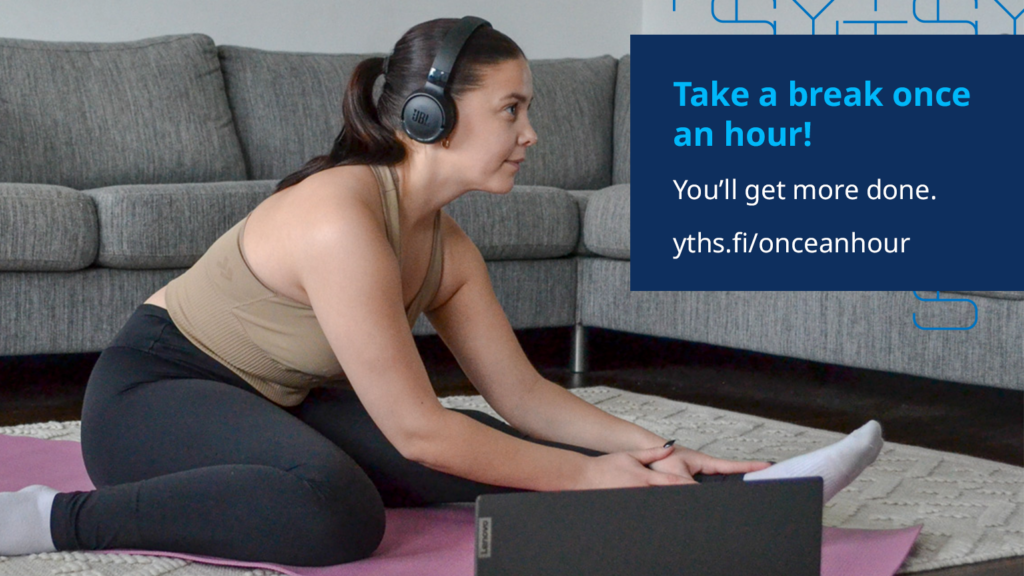Take a break once an hour!
Even when absorbed in tasks in your studies or employment, remember to take a quick break every hour you work. An hourly break from work benefits, among other things, your musculoskeletal health, your thought processing, concentration, and memory and learning.
So stop what you’re doing once an hour and move around for a while in a way that is natural for you. You’ll get more energised in body and mind.
We here at FSHS share break tips under the lable Once an Hour. The tips are intended to fit a student’s lifestyle.

Good reasons to have a break on purpose
Even a 1-to-2-minute break re-energises you and benefits your overall health, especially if you sit down a lot. The major takeaway is that you should move away from your desk or other workstation, move around in a way that suits you, and direct your focus elsewhere for a moment. This way your alertness and wellbeing remain good.
Check our social medial channels, this website and our 70-year anniversary health tip list for freshest productivity ideas.
Get moving and calm your mind once an hour
Here’s how to take a break during work or study:
- Set yourself an alarm every 60 minutes, using for example the alarm in your phone.
- When the alarm goes off, make a note of what you were doing.
- Leave your desk or other workstation. Stand up if you can.
- Move around in a way you like that refreshes you. You can for example shake your limbs, go get something from another room or even dance for a bit
- Think about something that isn’t the work you are taking a break from. You, can, for example, go through this calming exercise.
- Get back to your workstation and get back to work!
- Repeat steps 2 to 6 every time the alarm goes off.
.This page will be updated later. We will, for example, get a closer look at the physical and psychological effects of taking regular breaks and share more practical examples on how to enjoy breaks in a restorative manner.
